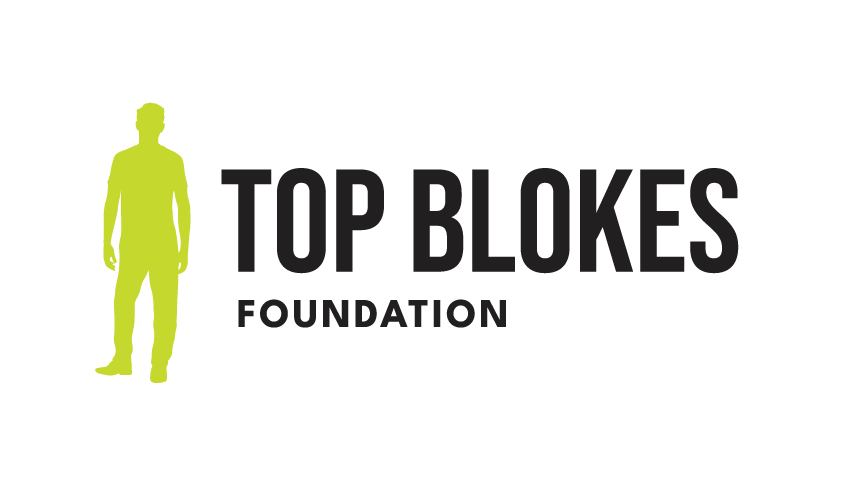Peer pressure – two words that can send a shiver down the spine of any parent or educator. It’s the invisible force that can nudge teenage boys toward making decisions they might later regret. But let’s get one thing straight: not all peer pressure is bad, and not all risk-taking is negative.
To help us break down these concepts, we turned to renowned parenting expert and Top Blokes ambassador Dr. Justin Coulson, who gives us the lowdown on how teenage boys, families and educators can navigate these tricky waters.
The hidden power of peer pressure
Peer pressure can be incredibly powerful, especially during the teenage years. “When it comes to sensation-seeking behaviour, boys are primed. Their brains are primed for reward, and they minimise risk. They just don’t see risk as being a big deal. This is why they all think that they can be professional gamers and YouTubers, because they see the potential reward, and they really believe that that’s where they can get to. They discount probabilities,” Dr. Coulson explains.
Dr. Coulson points out that peer pressure can be physical, verbal, or emotional, and it’s not always about someone pushing you around or calling you names. “Because they’re so oriented towards sensation seeking and impulsive behaviour if they see an opportunity to do something that brings with it the potential reward of social status or cultural cachet, their brain ignores the downside.”
Understanding these subtle cues is crucial for boys and important for families and educators to get to grips with. It’s not just about saying no to the obvious dares; it’s about recognising when you’re being nudged in a direction that doesn’t feel right.
Two types of risk-takers
When it comes to risk-taking, Dr. Coulson makes it clear, “not all risks are created equal”.
During Top Blokes mentoring sessions, we talk about two types of risk-takers: those who take calculated risks and those who dive into high-risk behaviour without thinking twice.
Calculated risk-takers weigh the pros and cons. They might still take a leap, but it’s a leap they’ve thought about – like trying out for a team or asking someone out on a date.
On the flip side, high risk-takers are driven by the thrill of the moment. They’re the ones who might ignore the dangers because they are focused on the immediate reward, whether that’s social approval or just the rush of adrenaline. Dr. Coulson explains, “Because there’s a lack of inhibition combined with the promise of reward, they see only the upside, and that’s why they go for it.”
Building resilience: The secret to overcoming peer pressure
So, how do we help boys navigate these pressures? According to Dr. Coulson, it’s all about building resilience. “Culture is usually defined as the collective behaviour of the group. It’s what we do around here that works okay as a definition, but my preferred definition is it’s the lowest accepted behaviour by the group. If the lowest acceptable behaviour in a group is to swear at each other or use racial slurs, if that’s acceptable then there’s no empathy there. That’s why it’s key to build values among boys, call out each other’s behaviour, be an upstander.”
At Top Blokes we believe in empowering boys to be “upstanders” – the ones who set the standard for positive behaviour rather than just going along with the crowd. We encourage them to realise that they don’t have to accept the lowest common denominator. Instead, they can be the ones who lift their group to a higher level of respect and kindness.
Resilience isn’t just about resisting negative peer pressure; it’s about recognising positive peer pressure too. Dr. Coulson points out that not all peer pressure is bad. “Positive peer pressure, or encouragement, can lead to beneficial outcomes,” he said. Think of it as the friend who nudges you to apply for that job you’re nervous about or to stand up for someone who’s being mistreated. That’s the kind of pressure we want to see more of.
Mentoring: The game changer
One of the most powerful tools in our toolkit is mentoring. Dr. Coulson highlights just how critical it is to have mentors who can guide boys through the challenges ahead. “For young men, role models aren’t just inspirational, they’re navigational – providing a compass for ambition, integrity, and resilience in a world that often sends mixed signals.”
At Top Blokes we get to see the best in boys and young men every day, and we know that with the right guidance, they can rise above the pressures they face.
Mentoring provides boys with the consistent support they need to develop empathy, emotional regulation, and the confidence to make their own decisions, even when peer pressure is at its peak. It’s about helping them see that they don’t have to follow the crowd – they can lead it.
Making better choices
At the end of the day, navigating peer pressure and making smart decisions about risk-taking comes down to giving boys the right tools and support. We can help them rise above the pressures they face and make choices that set them up for success.
So, the next time you see a boy struggling with peer pressure, remember: it’s not just about telling him to say no. It’s about giving him the confidence, resilience, and understanding to make the choice that’s right for him – whether that’s stepping away from a risky situation or stepping up to encourage a friend. We believe in the potential of every young man to lead, inspire, and thrive.




